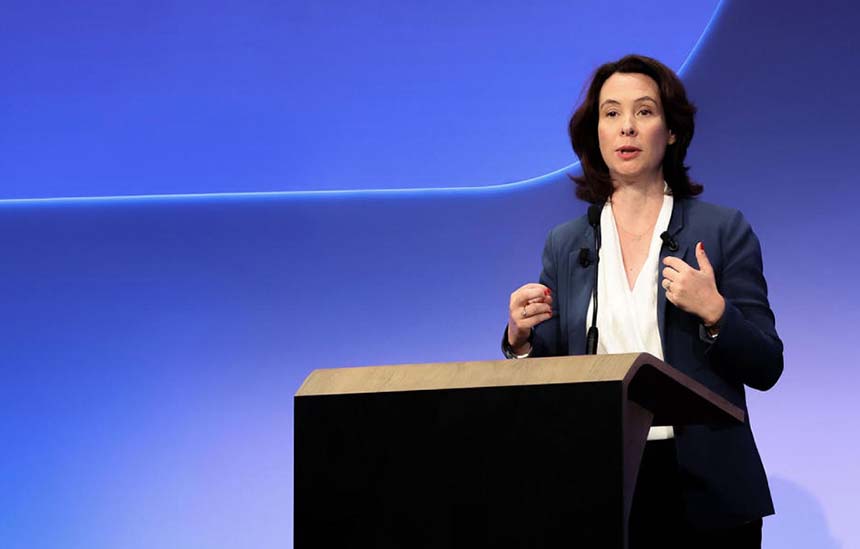With these words, Estelle Brachlianoff, Veolia’s CEO, concluded her speech at the United Nations Water Conference held in New York from March 22 to 24, a major event bringing together the world’s players on the crucial issues related to access to water and sanitation. It represented an opportunity for Veolia to reiterate that the world has every reason to remain optimistic because the solutions exist.
Net Zero Water” objective
“Over the past three years, we have been able to save the equivalent consumption of a city of 6 million inhabitants, i.e. 320 million cubic meters of water, thanks to better management, digital solutions and innovation,” emphasized Estelle Brachlianoff, insisting that while discussion is essential in order to move the debate forward, we need action and results. Around the world solutions developed by the Group are examples of ecological performance ready for massive deployment. For example, in New Jersey and New York, Veolia has provided an effective response to the serious problem of leaks in the network, or in Namibia, where the Group is transforming the capital’s wastewater into drinking water. Veolia also offers solutions to industrial companies enabling them to reduce their water consumption, in particular, by using recycled water in their processes and much more. The example of the Sinopec refinery near Beijing in China is quite remarkable,” says the CEO of the global leader in ecological transformation, “because in addition to optimizing the water cycle, we have restored an 8-hectare wetland at the end of the wastewater treatment process, enabling biodiversity to be restored.
Thus, the solutions already exist, but in order to duplicate them on a global scale, it is essential that all water stakeholders – states, local authorities, non-governmental organizations and private companies – be brought to the table to agree and act jointly.

